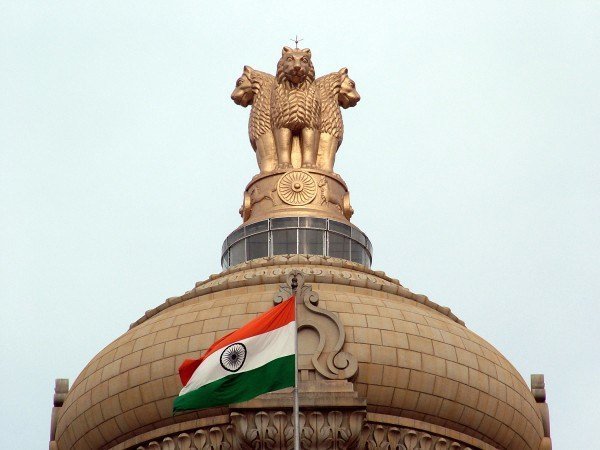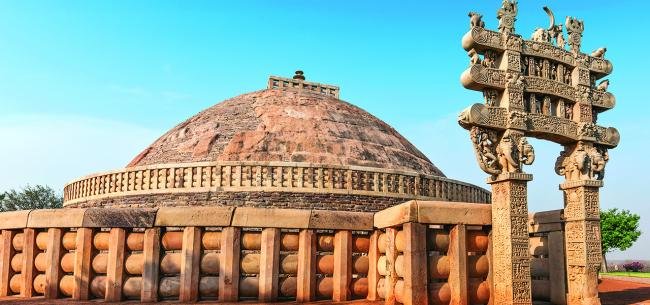


Important Articles of Constitution | Fundamental Rights | Directive Principles of State Policy | important articles for competitive exams | Fundamental Duties | list of important of Indian constitution pdf
Important Articles of Indian Constitution
The constitution of India contains 12 schedules, 22 parts, and 395 articles. We have gathered the most important articles of constitution out of these 395 articles.
The important articles of Constitution listed in this page are article 1, 5, 6, 10, 12, 13, 14, 15, 16, and 17.
Article 1 to 4 deals with name of the nation “India that is Bharat, Formation of new States and alteration of areas, boundaries or names of existing States among other things and Articles 5 to 11 deals with citizenship.
Article 12 to 17 pertains to Equality before law, Abolition of Untouchability, Prohibition of discrimination on grounds of religion, race, caste, sex or place of birth among other things.
Article 1 of indian constitution
- India, that is Bharat, shall be a Union of States.
- 1[The States and the territories thereof shall be as specified in the First Schedule.]
- The territory of India shall comprise -
- the territories of the States
- 2[(b) the Union territories specified in the First Schedule; and]
- such other territories as may be acquired
2. Subs. by s. 2 ibid, for sub-clause (b) (w.e.f. 1-11-1956).
Article 5 of indian constitution
- who was born in the territory of India; or
- either of whose parents was born in the territory of India; or
- who has been ordinarily resident in the territory of India for not less than five years immediately preceding such commencement, shall be a citizen of India.
Article 6 of indian constitution
- he or either of his parents or any of his grand-parents was born in India as defined in the Government of India Act, 1935 (as originally enacted); and
- in the case where such person has so migrated before the nineteenth day of July, 1948, he has been ordinarily resident in the territory of India since the date of his migration, or
- in the case where such person has so migrated on or after the nineteenth day of July, 1948, he has been registered as a citizen of India by an officer appointed in that behalf by the Government of the Dominion of India on an application made by him therefor to such officer before the commencement of this Constitution in the form and manner prescribed by that Government:
Provided that no person shall be so registered unless he has been resident in the territory of India for at least six months immediately preceding the date of his application.
Article 10 of indian constitution
Article 12 of indian constitution
Article 13 of indian constitution
- All laws in force in the territory of India immediately before the commencement of this Constitution, in so far as they are inconsistent with the provisions of this Part, shall, to the extent of such inconsistency, be void.
- The State shall not make any law which takes away or abridges the rights conferred by this Part and any law made in contravention of this clause shall, to the extent of the contravention, be void.
-
In this article, unless the context otherwise requires, :-
- “law” includes any Ordinance, order, bye-law, rule, regulation, notification, custom or usage having in the territory of India the force of law;
- “laws in force” includes laws passed or made by a Legislature or other competent authority in the territory of India before the commencement of this Constitution and not previously repealed, notwithstanding that any such law or any part thereof may not be then in operation either at all or in particular areas.
- 1[Nothing in this article shall apply to any amendment of this Constitution made under article 368.]
Article 14 of indian constitution
Article 15 of indian constitution
- The State shall not discriminate against any citizen on grounds only of religion, race, caste, sex, place of birth or any of them.
-
No citizen shall, on grounds only of religion, race, caste, sex, place of birth or any of them, be subject to any disability, liability, restriction or condition with regard to :-
- access to shops, public restaurants, hotels and places of public entertainment; or
- the use of wells, tanks, bathing ghats, roads and places of public resort maintained wholly or partly out of State funds or dedicated to the use of the general public.
- Nothing in this article shall prevent the State from making any special provision for women and children.
- 1[Nothing in this article or in clause (2) of article 29 shall prevent the State from making any special provision for the advancement of any socially and educationally backward classes of citizens or for the Scheduled Castes and the Scheduled Tribes.]
- 2[Nothing in this article or in sub-clause (g) of clause (1) of article 19 shall prevent the State from making any special provision, by law, for the advancement of any socially and educationally backward classes of citizens or for the Scheduled Castes or the Scheduled Tribes in so far as such special provisions relate to their admission to educational institutions including private educational institutions, whether aided or unaided by the State, other than the minority educational institutions referred to in clause (1) of article 30.]
-
3 [Nothing in this article or sub-clause (g) of clause (1) of article 19 or clause (2) of article 29 shall prevent the State from making, :-
- (a) any special provision for the advancement of any economically weaker sections of citizens other than the classes mentioned in clauses (4) and (5); and
- (b) any special provision for the advancement of any economically weaker sections of citizens other than the classes mentioned in clauses (4) and (5) in so far as such special provisions relate to their admission to educational institutions including private educational institutions, whether aided or unaided by the State, other than the minority educational institutions referred to in clause (1) of article 30, which in the case of reservation would be in addition to the existing reservations and subject to a maximum of ten per cent. of the total seats in each category.
2. Ins. by the Constitution (Ninety-third Amendment) Act, 2005, s. 2 (w.e.f. 20-1-2006).
3. Ins. by the Constitution (One Hundred and Third Amendment) Act, 2019, s. 2 (w.e.f. 14-1-2019).
Article 16 of indian constitution
- (1) There shall be equality of opportunity for all citizens in matters relating to employment or appointment to any office under the State.
- (2) No citizen shall, on grounds only of religion, race, caste, sex, descent, place of birth, residence or any of them, be ineligible for, or discriminated against in respect of, any employment or office under the State.
- (3) Nothing in this article shall prevent Parliament from making any law prescribing, in regard to a class or classes of employment or appointment to an office 1 [under the Government of, or any local or other authority within, a State or Union territory, any requirement as to residence within that State or Union territory] prior to such employment or appointment.
- (4) Nothing in this article shall prevent the State from making any provision for the reservation of appointments or posts in favour of any backward class of citizens which, in the opinion of the State, is not adequately represented in the services under the State.
- (4A) 2 [Nothing in this article shall prevent the State from making any provision for reservation 3 [in matters of promotion, with consequential seniority, to any class] or classes of posts in the services under the State in favour of the Scheduled Castes and the Scheduled Tribes which, in the opinion of the State, are not adequately represented in the services under the State.]
- 4B 4 [Nothing in this article shall prevent the State from considering any unfilled vacancies of a year which are reserved for being filled up in that year in accordance with any provision for reservation made under clause (4) or clause (4A) as a separate class of vacancies to be filled up in any succeeding year or years and such class of vacancies shall not be considered together with the vacancies of the year in which they are being filled up for determining the ceiling of fifty per cent. reservation on total number of vacancies of that year.]
- (5) Nothing in this article shall affect the operation of any law which provides that the incumbent of an office in connection with the affairs of any religious or denominational institution or any member of the governing body thereof shall be a person professing a particular religion or belonging to a particular denomination.
- (6) 5[Nothing in this article shall prevent the State from making any provision for the reservation of appointments or posts in favour of any economically weaker sections of citizens other than the classes mentioned in clause (4), in addition to the existing reservation and subject to a maximum of ten per cent. of the posts in each category.]
2. Ins. by the Constitution (Seventy-seventh Amendment) Act, 1995, s. 2 (w.e.f. 17-6-1995). 3. Subs. by the Constitution (Eighty-fifth Amendment) Act, 2001, s. 2, for certain words (retrospectively) (w.e.f. 17-6-1995).
4. Ins. by the Constitution (Eighty-first Amendment) Act, 2000, s. 2 (w.e.f. 9-6-2000).
5. 1 . Ins. by the Constitution (One Hundred and Third Amendment) Act, 2019, s. 3 (w.e.f. 14-1-2019).
Article 17 of indian constitution
All articles of Indian constitution
Fundamental Rights of Indian Constitution Article 12 to 35
Fundamental duties of Indian Citizens
Directive Principles of State Policy
| Horoscope | Bollywood |
| Technology | General Awareness |









